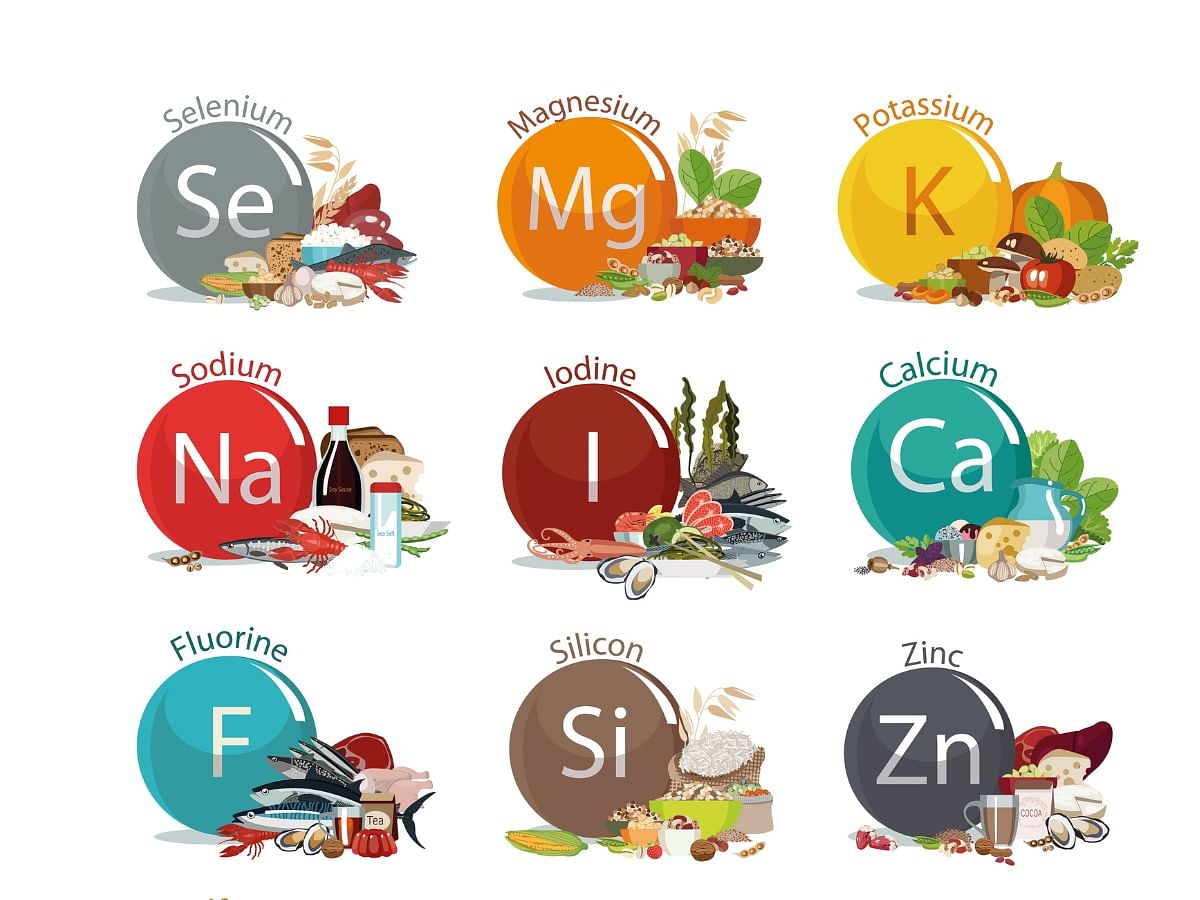
Exploring Minerals: The Building Blocks of Health and Vitality
Minerals are essential micronutrients that play a critical role in maintaining various physiological processes in the human body. These inorganic elements, though required in smaller quantities compared to macronutrients, are instrumental in supporting growth, development, and overall well-being. In this comprehensive article, we will delve into the world of minerals, exploring their types, functions, dietary sources, and their significance in promoting optimal health.
Understanding Minerals
Minerals are naturally occurring inorganic substances that are necessary for the proper functioning of the body. They are divided into two categories: macrominerals and trace minerals, based on the amounts the body requires.
1. Macrominerals
Macrominerals are required by the body in larger quantities compared to trace minerals. They include:
- Calcium: Essential for strong bones and teeth, muscle contraction, nerve transmission, and blood clotting.
- Magnesium: Involved in over 300 enzymatic reactions, including energy production, muscle function, and bone health.
- Phosphorus: Supports bone and teeth health, DNA and RNA synthesis, and energy metabolism.
- Sodium: Important for fluid balance, nerve signaling, and muscle contractions.
- Potassium: Vital for maintaining fluid balance, nerve function, and muscle contractions.
2. Trace Minerals
Trace minerals are required in smaller amounts but are no less important:
- Iron: A key component of hemoglobin, the molecule responsible for transporting oxygen in the blood. Iron is essential for energy production and immune function.
- Zinc: Supports immune function, wound healing, DNA synthesis, and growth.
- Copper: Aids in iron metabolism, connective tissue formation, and antioxidant defense.
- Selenium: Acts as an antioxidant, supporting immune function and thyroid health.
- Iodine: Crucial for thyroid hormone production, which regulates metabolism and growth.
- Manganese: Participates in bone formation, blood clotting, and antioxidant enzyme activity.
- Fluoride: Promotes dental health by strengthening tooth enamel.
- Chromium: Enhances insulin sensitivity and helps regulate blood sugar levels.
- Molybdenum: Supports enzyme function and metabolism of certain amino acids.
Functions of Minerals
Minerals play diverse and critical roles in the body’s various systems:
1. Bone and Teeth Health
Calcium, phosphorus, magnesium, and fluoride are essential for the development and maintenance of strong bones and teeth. They contribute to bone density, structure, and overall skeletal health.
2. Nerve and Muscle Function
Minerals like sodium, potassium, and magnesium are vital for nerve transmission and muscle contraction. These processes are essential for movement, coordination, and even basic bodily functions like breathing and heartbeats.
3. Enzyme Function
Many minerals act as cofactors for enzymes—proteins that facilitate biochemical reactions in the body. These reactions are involved in energy production, metabolism, and various cellular processes.
4. Fluid Balance
Sodium, potassium, and chloride are electrolytes that regulate fluid balance in and out of cells. They ensure proper hydration, nerve signaling, and muscle function.
5. Oxygen Transport and Energy Production
Iron is a key component of hemoglobin, which binds to oxygen in the blood and transports it to tissues. Additionally, iron is essential for energy production through its involvement in electron transport chain reactions.
Dietary Sources of Minerals
A balanced diet rich in a variety of foods is essential for obtaining the necessary minerals:
- Calcium: Dairy products, leafy greens, fortified foods.
- Iron: Red meat, poultry, fish, beans, fortified cereals.
- Zinc: Meat, dairy products, nuts, whole grains.
- Magnesium: Nuts, seeds, whole grains, leafy greens.
- Selenium: Seafood, meat, Brazil nuts.
- Potassium: Fruits, vegetables, beans, dairy products.
- Copper: Nuts, seeds, whole grains, organ meats.
- Iodine: Seafood, dairy products, iodized salt.
- Manganese: Nuts, whole grains, legumes, leafy greens.
- Fluoride: Water, fish, tea.
- Chromium: Whole grains, meat, broccoli.
- Molybdenum: Legumes, nuts, whole grains.
Balancing Mineral Intake
While minerals are essential, balance is key. Consuming too much or too little of certain minerals can lead to health issues. For example, excessive sodium intake is linked to high blood pressure, while inadequate calcium intake can increase the risk of osteoporosis.
Conclusion
Minerals are the unsung heroes of human health, working tirelessly behind the scenes to ensure proper functioning and vitality. From supporting bone health to enabling nerve transmission, enzyme activity, and energy production, their roles are diverse and indispensable. A well-rounded and balanced diet that includes a variety of nutrient-rich foods is essential to ensure adequate mineral intake and maintain overall well-being. Understanding the significance of minerals empowers individuals to make informed dietary choices that contribute to a healthy and thriving life.



